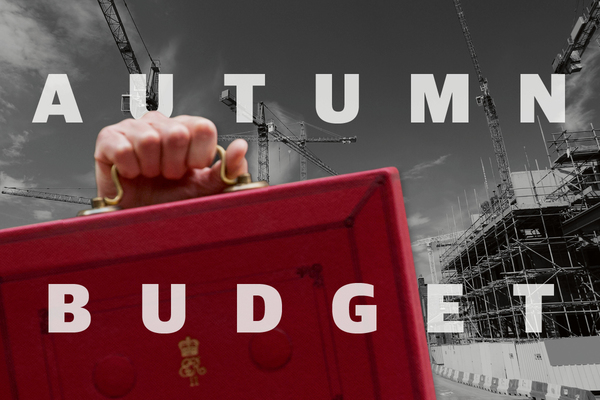You are viewing 1 of your 1 free articles
Budget measures criticised for lack of focus on affordability
A package of Budget measures to boost housebuilding have been criticised for a lack of focus on affordability, with the majority of new funding aimed at stimulating private sector development.
Chancellor Philip Hammond unveiled £15.3bn of capital, guarantee and loan based funding in his statement on Wednesday, which he hopes will help boost development to 300,000 homes a year by the mid-2020s.
But calls for major borrowing to support affordable housing development went unheeded, with the changes limited to a £1bn extension of borrowing capacity for councils in high demand areas.
Brendan Sarsfield, chief executive of housing association Peabody, had been among a group of housing associations to directly pitch a proposal for £100bn of funding to build new intermediate rented housing to Number 10 and the Treasury.
The pitch was not included in Mr Hammond’s Budget, despite a suggestion from communities secretary Sajid Javid in October that the government may support it.
Mr Sarsfield said: “We’ve got to welcome the priority given to housing [but] affordability is an issue for a very high percentage of people, and by not focusing on it you’re excluding them from the solution.
“There’s quite a high percentage of young people who can’t access any housing market beyond a shared room at the moment and we need solutions for them.”
Mick Sweeney, chief executive of Radian, added: “I don’t think there’s anything in terms of boosting the supply of new affordable homes, particularly. The overall problem with the budget is that the lead-up led us to believe that we were looking at fixing a broken housing market and increasing output from 200,000 to 300,000, yet there’s no long-term plan, there’s no long-term strategy. What we’ve got is a whole list of detailed initiatives, which, taken together, fall short of the strategic approach that we were led to expect from Theresa May’s party conference speech.”
Stephen Teagle, chief executive of Galliford Try Partnerships, added: “While the chancellor’s opened his bag and pulled out some tools, those in themselves are not going to be sufficient to lift supply to 300,000. I don’t think it’s sufficient in affordability terms to significantly improve access to homeownership for young people.”
However, the Treasury did confirm to Inside Housing on Wednesday that an £8bn programme of guarantee-based funding could be used for affordable homes.
Mr Hammond promised “£8bn of new financial guarantees to support private housebuilding and the purpose-built private rented sector” - the largest chunk of his £15.3bn.
A Treasury spokesperson confirmed a consultation on this scheme would consider whether it could fund affordable housing as well.
A government guarantee scheme for affordable homes run by Affordable Housing Finance has been extremely popular in recent years, while a similar scheme for private homes has had far less take-up.
Councils welcomed the announcement of £1bn of extra borrowing power, but said the cap on borrowing should be entirely lifted.
John Bibby, chief executive of the Association for Retained Council Housing, said: “We would have much preferred an overall lifting of the Housing Revenue Account debt caps but nevertheless this announcement is extremely welcome. Our concern is that the opportunity to bid is likely to be limited to councils within as yet to be defined areas of ‘high affordability pressure’. The government need to define what it means by this as quickly as possible.”
KEY BUDGET MEASURES AT-A-GLANCE
- Investment of £44bn in housebuilding in capital funding, loans and guarantees over the next five years to boost supply of skills, resources and land
- Commitment to be building 300,000 homes a year by mid-2020s
- £1.5bn package of changes to Universal Credit announced. This includes the scrapping of the seven-day waiting period at the beginning of a claim, making a full month’s advance available within five days of a claim for those that need it and allowing claimants on housing benefit to continue claiming for two weeks
- Lift council borrowing caps in "high-demand areas"
- A £125m increase over two years in Targeted Affordability Funding for Local Housing Allowance claimants in the private sector struggling to pay their rent
- New money into Home Builders Fund
- Extra £2.7bn for Housing Infrastructure Fund
- Invest £400m in estate regeneration
- £1.1bn on unlocking strategic sites
- Stamp duty for first time buyers on properties worth up to £300k will be axed, while the first £300k on properties worth up to £500k will also be scrapped
- Three new Housing First pilots announced for West Midlands, Manchester and Liverpool
- Councils to be given the power to charge 100% council tax premium on empty properties
- Government will launch a consultation to barriers to longer tenancies in the private rented sector
- £38m for Kensington & Chelsea Council for mental health and counselling services, regeneration projects in areas surrounding Grenfell Tower and a new community space
- Invest in five new garden towns
- £125m increase in Targeted Affordability Funding for Local Housing Allowance claimants in the private sector struggling to pay rent












